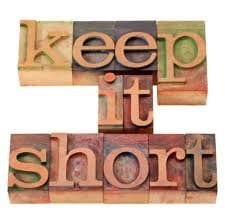The perfect cross examination is there. Somewhere to be discovered, perhaps? Better yet – waiting to be built. We recognize its appearance, though. It is crisp and it’s clean. Short  questions compelling but one-word answers from the witness. Its logic is simple, yet compelling. The perfect cross demands the jury’s attention. Through it we demonstrate our mastery of the facts and tell our story. It provides us meticulous witness control. It is smooth and powerful. Its timing is flawless. Moreover, the cross examiner is the star. The witness punctuates our story with simple answers of yes and no. Their wiggle-room is gone. Their escape hatches are shut.
questions compelling but one-word answers from the witness. Its logic is simple, yet compelling. The perfect cross demands the jury’s attention. Through it we demonstrate our mastery of the facts and tell our story. It provides us meticulous witness control. It is smooth and powerful. Its timing is flawless. Moreover, the cross examiner is the star. The witness punctuates our story with simple answers of yes and no. Their wiggle-room is gone. Their escape hatches are shut.
How do we go about creating this masterpiece of trial lawyering? And I know what you’re thinking. Not another commentary about the criminal defense attorney’s most indispensable weapon. Not another article about cross examination . . . please! But I trust this account is unique since it’s about the perfect cross, one that is quintessential. Cross examination is fine art and onerous to master. But we can distill the perfect cross down to three principle disciplines. The will to win, preparation, and execution.
At the heart of the perfect cross examination is our will to win. Not a hunger for self-aggrandizement. Nor the desire to embarrass a witness. But the thirst to leave the courtroom battlefield victorious especially in the face of menacing odds. For without a deep commitment to win we’ll lack the determination and motivation to undertake what is required. Namely, to exhaustively prepare and to impeccably execute the perfect cross examination. Our will to win, therefore, fuels the engine of our aspirations for victory. It is at the heart of the perfect cross.
While describing the demands of a solo criminal practice a young undergraduate once asked me if defense lawyers had time for golf. I laughed. “While you’re playing golf,” I said, “your dedicated opponent is devising a trial strategy to defeat you.” That thought always unnerved me. Consequently, early in my career I would invest in hours of cross examination preparation. Sometimes an hour of planning for every minute of cross examination. The goal was never to be out-worked, absolutely never. My cross examinations may have failed but not for a lack of effort. And fortunately, preparation time has been cumulative. The more experience invested in a subject area the more preparation hours carry over to the next cross.
Preparation is invested in approaching cross examination from the witness’ point of view. Put another way, we crawl into their skin to understand their worldview. This is especially true when preparing for the professional witness. (But equally the case for lay testifiers) Regarding the professional, though, prepare by examining the theory, process, and technique underlying the subject of their testimony. The cross examiner must understand each facet. How were they trained? By whom? In what? What books and treatises would they consider authoritative? Read them. What must they admit on cross? How might they attempt escape when cornered? How do we shut off that escape beforehand? What do they fear? Over what part of the process and technique did they have no control? What did they assume? What were their biases? Are they truly skilled or just button pushers? Yes, preparation demands much time. Time enough to ruin a good golf game. But necessary if we endeavor to understand our witness’ worldview and effectively cross examine them.
Executing the perfect cross involves impeccable planning. Tireless effort to develop short questions demanding but one-word answers. The best teaching I heard on cross examination was by Terence MacCarthy during his lecture called the “One-Word Cross.” Terry taught us the length of the question usually determined the length of the answer. Long questions limited our control and provided the witness opportunity to escape. Long questions simply sounded legalistic and even stupid. Wanting the witness to be short and under control, we needed to be short and controlled, as well. Furthermore, short questions minimized the opportunity for the witness to hurt us. Short questions sounded better and gave us better control of our story. We were less likely to look bad using well-crafted, short questions. Thomas Jefferson said it best: “The most valuable of all talents is that of never using two words when one will do.”
I don’t believe the perfect cross examination requires anymore than this three-pronged approach. Our deep seated will to win, exhaustive preparation and planning, all executed with short questions enables us to tell our story with simple, yet compelling logic. Never be out-worked and learn how your witness understands the world. Even if your cross fails, be proud of your effort. You are developing a reputation for excellence. The best of luck creating a masterpiece of trial lawyering . . . the perfect cross examination.
Stephen Gustitis is a criminal defense lawyer in Bryan-College Station. He is Board Certified in Criminal Law by the Texas Board of Legal Specialization. He is also a husband, father, and retired amateur bicycle racer.


